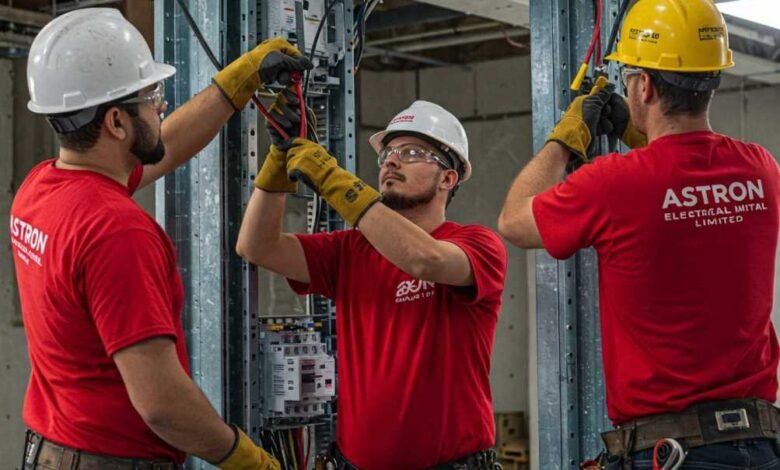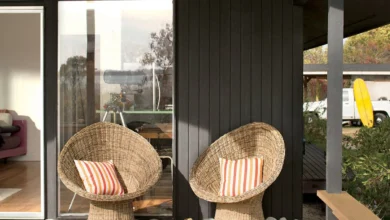When to Call a Licensed Electrician vs DIY Electrical Fixes

Electrical systems are essential to modern life — lighting, appliances, heating/cooling, security systems, and more depend on a safe, stable electrical setup. It’s natural to want to save costs by handling minor fixes yourself. But electricity carries serious hazards, and knowing your limits is crucial. This post helps you distinguish which electrical jobs are acceptable for DIY, which ones require a licensed electrician, and how to make that call confidently.
The Appeal & Risks of DIY Electrical Work
Why DIY Tempts Homeowners
-
Cost savings — labor can be expensive
-
Convenience & immediacy — no need to wait for a professional
-
Sense of accomplishment & control
Significant Risks to Be Aware Of
-
Electric shock or electrocution
-
Sparking, overheating, or fire from improper connections
-
Violations of electrical codes or local regulations
-
Voiding of insurance claims if damage results from unlicensed work
-
Hidden faults or faults that worsen over time
Many sources warn that even tasks that seem simple may conceal hidden dangers.
Tasks You Can Safely DIY
Some straightforward jobs may be reasonable for DIY — provided you take all precautions, know your local codes, and stay within your comfort zone. Examples include:
-
Replacing a light bulb or LED fixture (if wiring already present)
-
Replacing or upgrading a standard switch or outlet (assuming wiring is intact)
-
Swapping fixtures or light coverings
-
Resetting GFCI outlets or circuit breakers
-
Replacing fuse (in older systems) or replacing a blown fuse (if you’re confident)
These tasks typically don’t require new circuits or complex wiring changes, and many electricians’ blogs list them as acceptable DIY tasks.
However — always switch off power, use a voltage tester, and double-check your work.
When You Definitely Should Call a Licensed Electrician
Some tasks are too complex or hazardous to risk DIY. You should call a licensed electrician in these circumstances:
-
Any work involving the main electrical panel or breaker box
-
Adding new circuits (especially for high-demand appliances)
-
Rewiring rooms or whole circuits
-
Work in wet, damp, or outdoor areas (bathrooms, kitchens, exterior lighting)
-
Burning smells, smoke, flickering lights, hot or warm outlets
-
Frequent circuit breaker trips that aren’t resolved by resetting
-
Installing or upgrading to 240 V / high-voltage appliances (e.g. HVAC, ovens, EV chargers)
-
Replacing or removing old wiring types (knob & tube, aluminum wiring)
-
Installation of complex systems (electric car charger, standby generator, home automation wiring)
-
Local code compliance, permits, and inspections required
In short, if the work involves more than one junction box, may affect other circuits, or could compromise safety — call the pros. Many industry sources use rules of thumb like “if it affects the panel or runs new wiring beyond an outlet or switch, call a pro.”
How to Evaluate the Severity or Complexity
Here are practical questions to ask yourself before attempting a DIY repair:
| Question | If answer is “yes” → Call an electrician |
|---|---|
| Does this involve the main panel or breaker box? | Yes |
| Will I need to run new wiring or cross multiple circuits? | Yes |
| Is the area damp, outdoors, or near water sources? | Yes |
| Are there signs of overheating, burning smell, or past faults? | Yes |
| Will this require obtaining permits or inspections? | Yes |
| Do I lack confidence, tools, or understanding of wiring codes? | Yes |
If you hit any “yes” above, it’s safer to bring in a licensed electrician.
Safety Tips & Best Practices for DIYers
If you do proceed with a safe, simple DIY electrical task, follow these precautions:
-
Always shut off power at the breaker box — confirm using a non-contact voltage tester
-
Use insulated tools
-
Wear protective gloves and eye protection
-
Keep a flashlight handy
-
Label wires if you disconnect more than one
-
Ensure proper wire gauge and insulation
-
Recheck all connections; ensure they are tight
-
Use wire nuts or appropriate connectors
-
Avoid working alone — have someone nearby
-
Don’t fool yourself into doing more than you intended
-
Know local codes and permit requirements
Even with best efforts, if you get stuck or something looks off, stop, and call a professional.
What to Look for When Hiring an Electrician
When you decide to hire, picking the right licensed electrician ensures quality, safety, and compliance:
-
Valid license, certifications, and insurance
-
Good reviews, references, and past project examples
-
Clear written estimate and scope of work
-
Knowledge of local codes and permitting
-
Warranty or guarantee on work performed
-
Clean, safe approach and professionalism
You can also ask them to explain their diagnosis and solution so you understand what was done.
Conclusion & Call to Action
Balancing DIY ambition with safety is critical when it comes to electrical work. Minor tasks may be manageable, but the risks multiply fast with complexity. When in doubt, err on the side of caution and call a licensed electrician.
At Astron Electric, we handle everything from minor repairs and inspections to full rewiring, panel upgrades, and smart-home installations. If you ever feel unsure or need reliable, code-compliant service, contact us — your safety is worth it.
FAQs
Q: Will calling an electrician be expensive?
A: It may cost more than DIY, but it’s often cheaper than repairing damage, legal issues, or liability from DIY mistakes.
Q: Can I mix DIY and professional work?
A: Yes — for example, do minor tasks yourself and let professionals handle heavy wiring or installations. Just make sure everything stays compliant.
Q: Does home insurance cover DIY electrical work?
A: Many insurance policies may refuse claims if damage is traced to unlicensed DIY electrical work. Always check your policy.
Q: How often should I get electrical inspections?
A: Especially for older homes (20+ years) or properties with frequent issues, consider getting a full inspection every 5–10 years or before major renovations.




